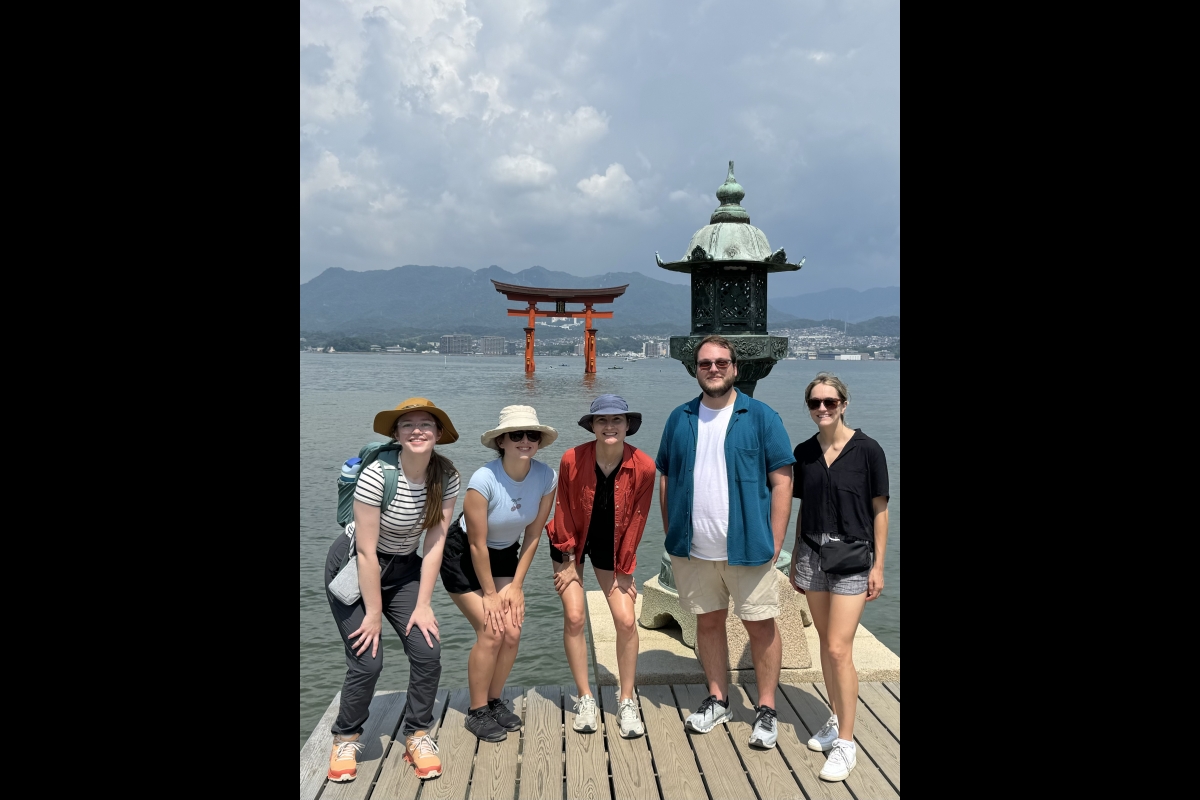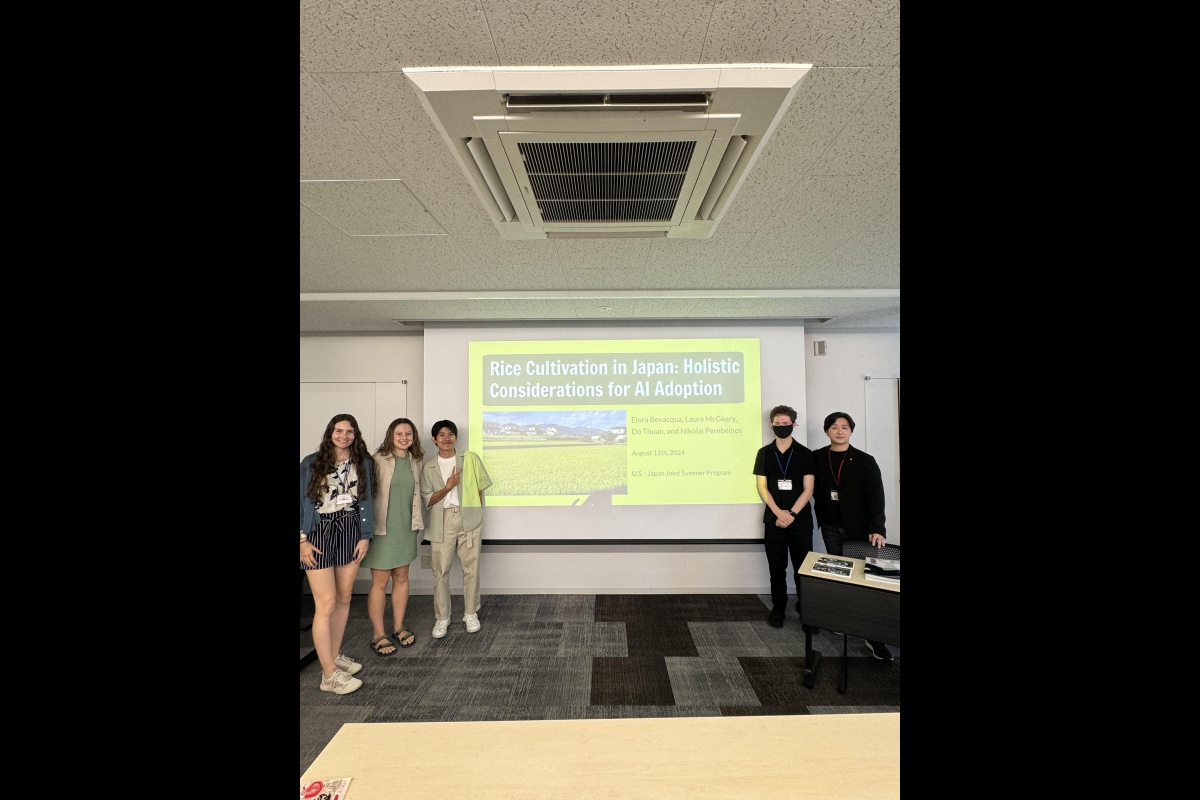ASU students explore role of AI in future of work and society in Japan
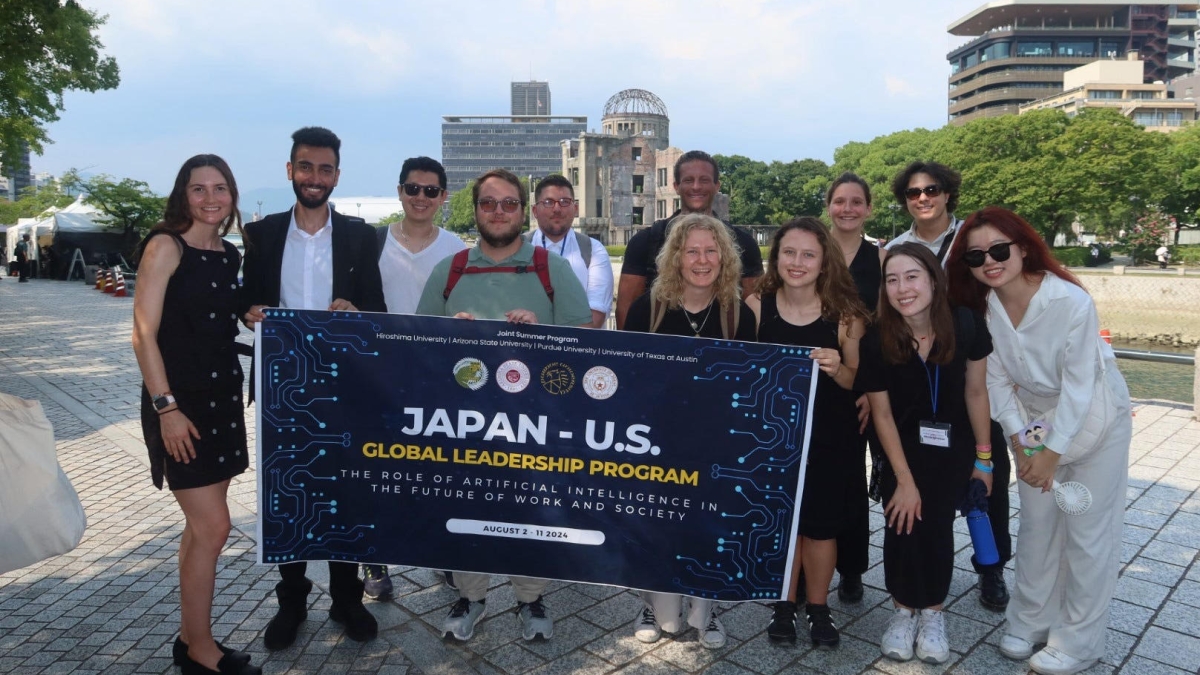
A group of Arizona State University undergraduate and graduate students from the College of Global Futures and the Thunderbird School of Global Management pause for a photo during the inaugural “Japan–U.S. Global Leadership Program in the Age of Artificial Intelligence” in Japan. Photo courtesy of Elora Bevacqua
As society grapples with the rapid advancements in artificial intelligence, it is critical to foster an understanding and broad discussion of the benefits as well as the risks associated with the diffusion of these technologies in society.
This year, the U.S.–Japan strategic partnership reached an important milestone, with both nations committing to stronger collaboration in the field of AI as part of Japanese Prime Minister Fumio Kishida’s historic state visit to the U.S., according to Reuters.
With this mission in mind, Arizona State University is leading efforts to foster a deeper understanding of AI's implications in the U.S. and globally.
This summer, 12 undergraduate and graduate students from the College of Global Futures and the Thunderbird School of Global Management participated in the inaugural “Japan–U.S. Global Leadership Program in the Age of Artificial Intelligence” cohort in Japan. The program is an international joint educational initiative hosted by Hiroshima University in partnership with three U.S. institutions: ASU, the University of Texas at Austin and Purdue University.
“The partnership with Hiroshima University brought together U.S., Japanese and international students to analyze artificial intelligence and its uses to benefit societies,” said Mary Jane Parmentier, a clinical professor and deputy director of the School for the Future of Innovation in Society, an academic unit of the College of Global Futures, who led the student experience in Japan this summer.
The academic program was funded by Japan’s Ministry of Education, Culture, Sports, Science and Technology (MEXT) as one of its five-year Inter-University Exchange Projects, which aim to foster international collaboration on AI education.
“Through progressive learning and cross-cultural exchanges, the program aspires to develop leaders who will shape a new society that harmoniously coexists with AI,” said Shinji Kaneko, executive vice president for global initiatives at Hiroshima University.
The program ran from Aug. 1–10 and included lectures, workshops, company visits, field trips to local attractions and cultural learning experiences in Hiroshima.
“We are thrilled to provide our ASU students with this invaluable opportunity to cultivate a global mindset while connecting cutting-edge innovation with meaningful societal impact,” said Eusebio Scornavacca, director of the School for the Future of Innovation in Society and professor with the Thunderbird School of Global Management. Scornavacca is the ASU lead person of the joint initiative.
During the program, students and faculty from partnering universities worked together to integrate AI across sectors like agriculture, health care, community service and government policies, with a focus on Japan's society.
Caleb Casey, an ASU Online undergraduate student majoring in innovation in society and business administration, said the experience broadened his horizons and fueled his passion for further exploration of AI. His group project in the program explored the intersection of neuroscience, artificial intelligence and linguistics to expand the possibilities of learning and communication.
“As an online student, this in-person opportunity was truly enriching; collaborating with peers from different universities enhanced my ability to build international relationships and approach complex issues from multiple perspectives,” Casey said.
Laura McGeary, an ASU student participant pursuing a Master of Sustainability Solutions, said, “This has been the most intentional and transformative learning experience. Bringing together makers, doers and thinkers to align on what the future might look like if we all work together toward positive outcomes was incredibly impactful.”
McGeary worked with fellow ASU student Elora Bevacqua, who is also pursuing a Master of Sustainability Solutions with a certificate in food policy and sustainability leadership. During the experience in Japan, they focused on how to implement AI technology in rice cultivation in Hiroshima.
The program emphasized the dual nature of technological advancements and their profound impacts on humanity. While focused on the forward-looking future through technological advancements, students also learned about history and peacebuildingA long-term process that involves rebuilding communities affected by war., as this year marked the 79th anniversary of the Hiroshima and Nagasaki bombings.
As part of the program, students visited the Atomic Bomb Dome and participated in the annual Aug. 6 Hiroshima Peace Memorial Ceremony while hearing from personal accounts of an A-bomb survivor in Hiroshima.
“It was highly significant to have the workshop on this emerging technology, with its potential for good and harm, in the city of Hiroshima, which bore the tragic results of a technological development used for warfare,” said Parmentier.
The goal of the program is to cultivate globally competent leaders equipped with advanced AI and data literacy skills. These future leaders will help guide international discussions on AI’s responsible use, ensuring that society can harness its benefits while addressing its risks, Kaneko said.
The summer program is part of an expansive and ongoing partnership between ASU and Hiroshima University, Scornavacca said. The collaboration showcases ASU’s continued commitment to innovation, global leadership and equipping graduates with the knowledge and skills to succeed in a world where AI is every day more present.
More Science and technology
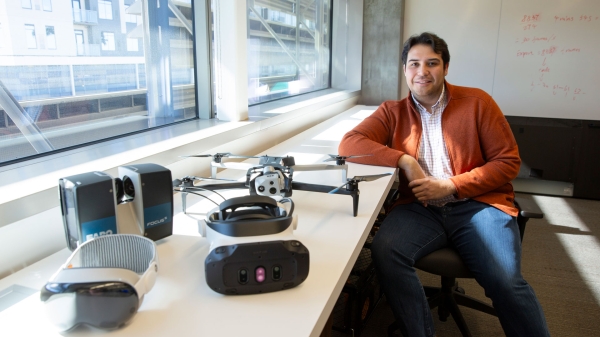
Teaching construction realities with virtual environments
Visiting a construction site is a valuable learning opportunity for students who want to one day work in the industry. Experiencing the sights, sounds and other sensory elements of an active…
ASU, Mexico partner to build next generation of chipmakers, drive semiconductor innovation
Thousands of college students in Mexico will soon have the opportunity to enroll in Arizona State University’s new, free online course to learn the fundamentals of microelectronics and…
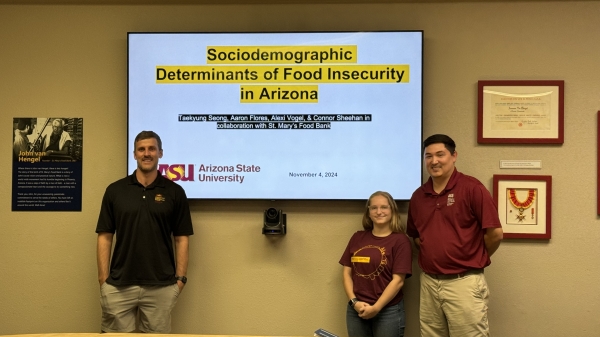
ASU, St. Mary’s Food Bank partner to tackle food insecurity in Arizona
Arizona State University and St. Mary’s Food Bank (SMFB) have joined forces to create an interactive data dashboard that tracks and maps food insecurity rates across Arizona. This innovative tool…
